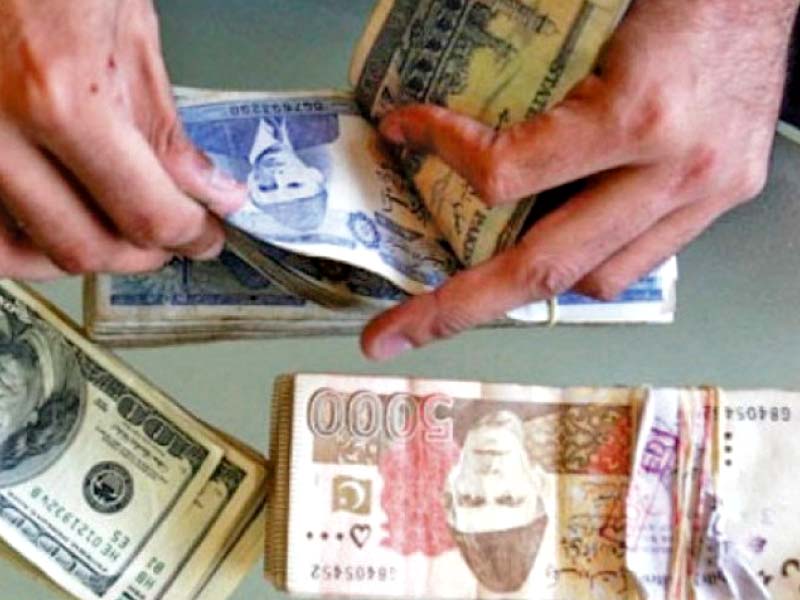Bank borrowings jump amid pandemic
People and businesses ramp up investment in gold, PSX shares, pharmaceuticals
KARACHI:The coronavirus pandemic has continued to reshape the economy and change priorities around the world. The latest banks' statistics suggest some of the businesses stayed optimistic despite the ongoing Covid-19 challenges, while majority appeared cautious.
People and businesses have ramped up investment in gold, shares at the stock market, hospitals, pharmaceuticals, readymade garment and fertiliser making in Pakistan during July 2020, according to the State Bank of Pakistan (SBP).
Individuals also borrowed more to buy or invest in housing, owning a car and increase personal loans.
However, majority of the businesses in manufacturing, agriculture and real estate sectors including major agriculture crops like wheat, cotton, rice, sugarcane, cotton, textiles and oil and gas exploration sectors partially paid back debt owed to banks apparently due to a drop in the demand for relevant products since Covid-19 outbreak or because of this being off-season for them, according to background discussion with experts.
People opted to park savings in gold and shares at the Pakistan Stock Exchange (PSX) during the month of July as they appeared optimistic to win against Covid-19.
They borrowed a fresh Rs11.27 billion from banks to invest in securities and shares of the private sector during July 2020, as the total bank borrowing increased to Rs225.29 billion in the month under review compared to Rs214.02 billion in the previous month of June 2020, according to the central bank.
PSX benchmark KSE-100 Index has recovered around 12,500 points, or 46%, in the past five-month to close at 39,622 points on August 21 (Friday). The Covid-19 outbreak had pushed the index 16,000 points, or 37%, lower to 27,000 points in the last week of March. The significant recovery in infection cases and massive 625 basis points cut in the benchmark interest rate made investment at the market profitable, experts remarked.
Hospitals and medicine manufacturers invested more apparently in the wake of the global health crisis of Covid-19 and other ongoing facilities.
Investment through banks' borrowing in human health activities like the hospital, medical and dental increased around Rs1 billion to Rs15.50 billion in July compared to Rs14.51 billion in June, said the central bank.
Banks' borrowing by the manufacturers of basic pharmaceutical products and pharmaceutical preparations increased Rs3.71 billion to Rs64.50 billion in July compared to Rs60.78 billion in June, it stated.
Readymade garment manufacturers borrowed extra Rs1.26 billion, as their outstanding loans surged to Rs90.66 billion in July compared to Rs89.39 billion in June. While fertiliser manufacturers borrowed Rs3.50 billion, as their outstanding loans surged to Rs119.21 billion in July compared to Rs115.70 billion in June.
Sugar manufacturers retired Rs35.56 billion in the single month of July after the sweetener price soared over Rs100 per kilogram in recent days compared to around Rs80 in May. Their total outstanding loan reduced to Rs259.71 billion in July compared to Rs295.39 billion in June.
Textile manufacturers returned Rs264.48 billion, as their outstanding loans fell to Rs1.06 trillion in July compared to Rs1.09 trillion in June.
Agriculture, forestry and fishing sector paid outstanding loan dropped to Rs278.93 billion compared to Rs280.21 billion.
Majority of the businesses retired bank borrowing in the month under discussion. The private sector paid-off net Rs110.29 billion in July. This reduced outstanding borrowing by the private sector to Rs8.11 trillion in the month.
BMA Capital Executive Director Saad Hashmi, earlier said that the businesses have continued to pay off the debt to banks mainly due to massive economic slowdown under the recent over four-month lockdown imposed to contain the spread of Covid-19.
Next Capital Managing Director Muzamil Aslam said businesses mainly the textile ones kept retiring the borrowing from January-February and onwards. "Coincidently, Covid-19 emerged at the time when businesses retire banks borrowing," he said.
They mostly borrow during August and September when they buy cotton for the whole year, he added.
Published in The Express Tribune, August 23rd, 2020.
Like Business on Facebook, follow @TribuneBiz on Twitter to stay informed and join in the conversation.


COMMENTS
Comments are moderated and generally will be posted if they are on-topic and not abusive.
For more information, please see our Comments FAQ